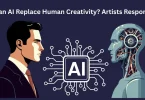Artificial intelligence plays a key role in the healthcare industry. The applications of artificial intelligence in the medical field are numerous and diverse. Nowadays, the healthcare industry is increasingly using artificial intelligence techniques to improve patient care and improve process efficiency. At this time, artificial intelligence in the field of healthcare has crossed many core areas of medicine.
From diagnosis to health and wellness to the application of smart devices, artificial intelligence has formed various forms to a certain extent.
Why artificial intelligence is important in the Medical field?
Let’s take a look at the current status of artificial intelligence in the field of healthcare.
Medical diagnosis
Artificial intelligence helps to understand the disease better, analyze the patient’s specific disease characteristics, and measure the treatment process and its effects. It is a powerful tool for monitoring disease progression through set parameters. Artificial intelligence systems can analyze more data faster than doctors. AI uses historical data from hundreds, thousands, or even millions of diagnoses and then compares it with the patient’s condition to diagnose the disease, predict its progression, and provide treatment recommendations.
Heart disease
One surprising area of machine learning research is the study of heart disease. Scientists are currently exploring the risk factors of degenerative heart disease, including using existing machine learning tactics to predict heart attacks. One example of the use of artificial intelligence is the implantable defibrillator, which can monitor the heart rhythm of patients at risk of a heart attack. If necessary, the device will also apply an electric shock.
In the long term, data from wearable devices and implants will be combined with electronic medical records (EHR) for continuous patient monitoring so that doctors can get more up-to-date information about their patients.
Use of AI Neurology
Neurocare involves neurological diseases such as Parkinson’s disease, Alzheimer’s disease, epilepsy, stroke, and multiple sclerosis. Artificial intelligence can monitor patients with neurological disorders around the clock to see whether the patient’s physical condition is improving or declining. Artificial intelligence can also predict strokes and monitor the frequency of seizures.
AI helping in Immunotherapy for cancer treatment
Because artificial intelligence can analyze more information faster than doctors, it can recognize patterns in genetics and associate them with immunotherapy options. This ability can lead to genuinely personalized cancer treatments.
AI helps to identify Antibiotic resistance
Antibiotics help keep people healthy. However, their widespread use has led to the production of antibiotic-resistant bacteria, which kills 70,000 people worldwide each year. Researchers use machine learning (an artificial intelligence technique) to identify genes in bacteria that cause antibiotic resistance. Artificial intelligence is also used to identify pre-symptomatic patterns in electronic medical records (EHR) in order to send more and earlier alerts to healthcare providers.
Electronic health record
Keeping medical records is one of the painful areas of the medical industry. Electronic health records (HER) have not entirely replaced paper records, and even if their use is widespread, reception staff, medical assistants, and doctors must perform a lot of manual input. Here, the voice recognition function replaces the keyboard. Therefore, users can say what they want to record in the electronic health record (HER) instead of typing in the information in the system.
The video-based image recognition function may supplement the electronic health record (HER) in the future because it can provide further insights into the patient’s condition analyzed by artificial intelligence, which doctors may ignore or miss.
For example, the image analysis system can determine when the patient is in pain, which may indicate the behaviour of looking for analgesic drugs.
AI based Health and wellness devices
Although medical-grade equipment can track more information, more and more patients can wear portable devices or smart watches for monitoring. The function of these devices depends on their design and complexity. They can provide insights into heart rate, oxygen levels, blood sugar levels, sleep patterns, breathing, gait, etc., and provide healthcare providers with the information they cannot get during appointments.
For example, the recovery of a stroke patient may show improvement based on the patient’s gait, and the early signs of a heart attack may mean the difference between the need for surgery and the absence of surgery. Artificial intelligence recognizes patterns in the data to determine the patient’s current health status.
Brain-computer interface:
The brain-computer interface is currently not a mainstream technology. However, people are very interested in this field because brain-computer interfaces can replace other computer interfaces, which are particularly useful for people with permanent or temporary disabilities. For example, a brain-computer interface that supports artificial intelligence can help stroke patients communicate with rehabilitation providers soon after a stroke rather than after rehabilitation.






Leave a Comment